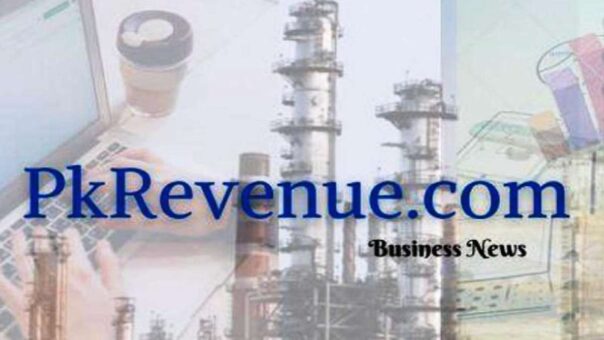Islamabad, February 26, 2026 – The Government of Pakistan has taken a major step to boost domestic energy production by awarding 11 onshore oil and gas blocks to leading national companies, securing a minimum committed investment of Rs8.66 billion (USD 31 million) over the next three years.
(more…)Tag: exploration
This tag provides stories related to exploration. Pakistan Revenue is committed to provide updates on the exploration as soon as available.
-

Pakistan unveils offshore exploration bidding results after 18-year gap
Islamabad, October 31, 2025 – In a landmark move to strengthen Pakistan’s energy security and boost local resource development, the Ministry of Energy (Petroleum Division) has announced the results of the Offshore Bid Round 2025, held after an 18-year hiatus.
(more…) -

Pakistan Opens 71 New Blocks for Oil and Gas Exploration
Islamabad – Pakistan has announced the offering of 71 new blocks for oil and gas exploration, marking a significant step in revitalizing the country’s energy sector after a decade.
(more…) -

Pakistan’s Oil and Gas Sector to Boost with $5 Billion Investment
Islamabad, July 6, 2024 – In a promising development for Pakistan’s energy sector, a delegation of local and international oil and gas exploration and production (E&P) companies announced a significant investment of $5 billion over the next three years. The announcement came during a meeting with Prime Minister Shehbaz Sharif at the Prime Minister’s House.
(more…) -

NRL Granted Mineral Exploration Lease in Balochistan
Quetta, October 24, 2023 – National Resources Limited (NRL) has been awarded an exploration lease for minerals in the Chagai district of Balochistan.
(more…) -

Mari Petroleum signs exploration agreement
KARACHI: Mari Petroleum Company Limited (MPCL) on Monday announced that it has executed a farm-in agreement.
The company signed the with MOL Pakistan Oil and Gas Co. B.V. for acquisition of significant working interest in Margala Block. The company signed the deal to collaborate resources and efforts to jointly perform exploration activities.
The Block is situated in the Potwar Basin in the vicinity of Islamabad. The assignment of working interest shall be subject to Government approval.
This farm-in is part ofMPCL’s aggressive strategy not only to increase its exploration acreage, reserves replacement ratio and maximizing shareholder’s value. it will also meet Country’s increasing energy demand from indigenous resources and lowering the burden of imported fuels on national economy.
-

OGDCL-PPL awarded exploration rights of new block in Balochistan
KARACHI: The government has provisionally awarded exploration rights of a new block situated in the Balochistan Province to a joint venture comprising Oil and Gas Development Company Limited (OGDCL) and Pakistan Petroleum Limited (PPL), a statement said on Friday.
The statement issued by PPL said that the government had provisionally awarded a new block ‘Suleiman (Block No. 3069-9) situated in Balochistan for exploration rights to the joint venture formed between OGDCL and the company.
“OGDCL and the Company [PPL] each hold fifty percent working interest in the block which will be operated by OGDCL, subject to the execution of a Petroleum Concession Agreement and issue of an Exploration License,” the statement added.
-

Reduction in corporate rate for E&P companies recommended
KARACHI: Federal Board of Revenue (FBR) has been recommended to reduce the income tax rate for exploration and production (E&P) companies especially in wake of massive reduction in international oil prices.
Overseas Investors Chamber of Commerce and Industry (OICCI) in its proposals for budget 2020/2021, said that higher corporate tax rate on exploration and production (E&P) sector should be reduced and aligned to the rate of other corporate sector.
The applicable tax rate for the Oil and Gas Exploration and Production sector is 40 percent. Before the promulgation of Income Tax Ordinance, 2001, the tax rate was 50 percent to 55 percent, however, the royalty payment to the government was adjusted against the tax liability, resulting in effective tax rate of approximately 35 percent or less.
Applicability of effective 40% tax rate has in fact increased the tax expense of the Oil and Gas Exploration and Production Companies, as against the incentives given to other sectors of the economy, whereby the tax rate will be gradually reduced to 30 percent.
The OICCI recommended:
i. To incentivize oil and gas exploration in the country especially after the massive reduction in the international oil prices, the corporate tax rate on E&P sector should be reduced from the current 40 percent to the rate applicable to other corporate sector by making necessary amendments in the Income Tax Ordinance, 2001 and Regulation of Mines and Oilfield and Mineral Development (Government Control) Act, 1948.
The OICCI further said that the rate of tax applicable on E&P companies on their Oil & Gas profits are given in their respective PCAs signed with Government.
Under Rule 4AA of Part I of the Fifth Schedule to ITO 2001, Super tax has been imposed at 3 percent for E&P companies earning Rs 500 million (equivalent to US$ 5million).
The OICCI recommended:
i. It is critical for E&P sector and recommended that the tax applicable should be calculated strictly in accordance with the provisions of the respective PCAs signed between Government and each E&P company & are legally binding, without changes throughout the full Lease period.
Tax credits under section 65A and 65B are not currently being allowed to E&P companies by the tax authorities despite the fact that appellate Tribunal decided the matter in favor of E&P companies.
Therefore, the FBR should issue necessary clarification.
The OICCI highlighted issue of depletion allowance – under Rule 3 of part 1 of the Fifth Schedule of Income Tax Ordinance, 2001.
Clarity over definition of well head value for computation of Depletion allowance is required.
As per clause 3 of Fifth Schedule, depletion is calculated at the rate of 15 percent of the gross receipts representing well-head value of production, but not exceeding 50 percent of taxable income.
E&P industry interprets above by calculating depletion at 15 percent of Gross Revenue before royalty deduction. Tax authorities calculate depletion at 15 percent of Gross Revenue after deduction of royalty.
Therefore, it is recommended:
Amendment should be introduced in the relevant clause in favor of E&P companies for depletion to be calculated at the rate of 15 percent of revenues before royalty deduction.
Under the sales law the rate of sales tax is 17 percent. In case of Independent Power Producers (IPP’s), they are required to pay Output sales tax (GST-Output) at 17 percent on the value of sale of electricity after adjusting the Input sales tax (GST-Input) on Residual Fuel Oil (RFO) paid by them to PSO. Currently the GST-Input rate is 20%. This is resulting in significant adverse cash flow for IPPs as well as is increasing the refund due from FBR.
Therefore, it is recommended that the rate on electricity should be raised from 17 percent to 20 percent as has been done in the case of diesel based IPPs, so that input and output GST rates are same.
-

Reduction in corporate tax for E&P companies recommended to attract foreign investment
KARACHI: Federal Board of Revenue (FBR) has been recommended to reduce corporate tax rate for exploration and production companies in order attract foreign investment in this sector and generate more revenue for the country.
The Overseas Investors Chamber of Commerce and Industry (OICCI) in its tax proposals for budget 2019/2020 said that the applicable tax rate for the Oil and Gas Exploration and Production sector is 40 percent.
Before the promulgation of Income Tax Ordinance, 2001, the tax rate was 50 percent to 55 percent, however, the royalty payment to government was adjusted against the tax liability, resulting in effective tax rate of approximately 35 percent or less.
Applicability of effective 40 percent tax rate has in fact increased the tax expense of the Oil and Gas Exploration and Production Companies, as against the incentives given to other sectors of the economy, whereby the tax rate will be gradually reduced to 30 percent.
The OICCI recommended that in order to incentivize oil and gas exploration in the country especially after the massive reduction in the international oil prices, the corporate tax rate on E&P sector should be reduced from the current 40 percent to the rate applicable to other corporate sector by making necessary amendments in the Income Tax Ordinance 2001 and Regulation of Mines and Oilfield and Mineral Development (Government Control) Act, 1948.
Giving rationale, the OICCI said that foreign investment will be encouraged in the country, which will eventually increase the tax collection of the government and will also greatly help to overcome the energy crises in the country.
The OICCI highlighted another issue of limitation on payment to federal government and taxes, and said that the rate of tax applicable on E&P companies on their Oil & Gas profits are given in their respective PCAs signed with government.
Under Rule 4AA of Part I of the Fifth Schedule to the Income Tax Ordinance, Super tax has been imposed at 3 percent for E&P companies earning Rs 500million (equivalent to US$ 5million).
It recommended that it is critical for E&P sector and recommended that the tax applicable should be calculated strictly in accordance with the provisions of the respective PCAs signed between Government and each E&P company and are legally binding, without changes throughout the full Lease period.
The chamber said that this will remove the negative investment scenario, and potential for litigation – due to the varying interpretations by the FBR from time to time (despite the signed PCAs with Government)
The OICCI said that tax credits under section 65A and 65B are not currently being allowed to E&P companies by the tax authorities despite the fact that appellate Tribunal decided the matter in favour of E&P companies.
Therefore, it is suggested that necessary clarification needs to be provided by tax authorities to assessing authorities.
In view the current energy deficit in the country and recent decision of appellate Tribunal, these credits should be allowed to the E&P companies to promote further investments in this sector.
Regarding depletion allowance, the OICCI said that clarity over definition of well head value for computation of depletion allowance is required.
As per clause 3 of Fifth Schedule, depletion is calculated at 15 percent of the gross receipts representing well-head value of production, but not exceeding 50 percent of taxable income.
E&P industry interprets above by calculating depletion at 15 percent of gross revenue before royalty deduction.
Tax authorities calculate depletion at 15 percent of Gross Revenue after deduction of royalty.
Therefore, it is proposed that amendment be introduced in the relevant clause in favor of E&P companies i.e. depletion to be calculated at 15 percent of revenues before royalty deduction.
The matter is under litigation at High Court level for various E&P companies. Clarification in the definition of Well head value will ease unnecessary burden of these litigations for E&P Companies, the OICCI added.
-

New petroleum policy to offer incentives to foreign E&P companies: Imran Khan
ISLAMABAD: Prime Minister Imran Khan has said that the government is working on a new petroleum policy, which will offer incentives to foreign exploration and production (E&P) companies.
The prime minister said this at a meeting with Chief Executive Officer Kuwait Petroleum Shaikh Nawaf Saud Al-Sabah, along with his delegation, which called on Prime Minister Imran Khan at Prime Minister’s Office on Wednesday.
The prime minister said that in order to capitalize the existing potential of the sector, the fovernment was working on a new petroleum policy offering incentives to foreign exploration and production (E&P) companies and removing impediments in way to undertaking smooth and profitable business ventures.
Minister for Energy Omar Ayub Khan, Minister Energy Punjab Dr. M. Akhtar Malik, Secretary Petroleum Mian Asad Hayauddin and senior officers were also present during the meeting.
Shaikh Nawaf Saud Al-Sabah briefed the Prime Minister about Kuwait Petroleum’s business ventures in Pakistan since 1980s in the area of exploration.
He evinced keen interest in further expanding business activities in the country.
The prime minister welcomed Shaikh Nawaf Saud Al-Sabah and his delegation to Pakistan and assured Government’s continued support to the company in their smooth business operations.
The prime minister highlighted various steps that the present Government has taken for improving ease of doing business and facilitation of foreign investment.
The prime minister observed that exploration remained a neglected area in past.
Imran Khan appreciated company’s contribution towards imparting training to the local manpower in E&P sector.
Minister Energy Punjab Dr. M. Akhtar Malik also briefed the meeting about various initiatives being taken by Punjab Government in Petroleum sector.